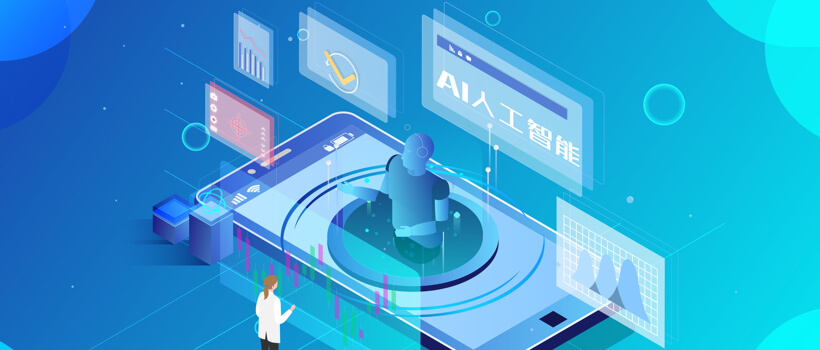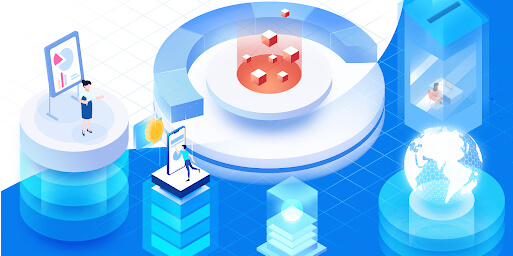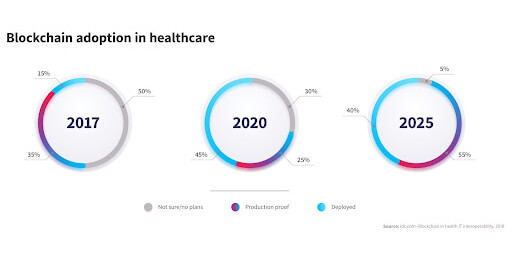 1-800-805-5783
1-800-805-5783 
Table of contents
Blockchain is currently a trending topic in the corporate world. Multiple analyses have revealed that blockchain implementation can save money, increase efficiency, and raise overall industry performance. According to a report by Investopedia, industrial blockchain investment will reach $11.7 billion in 2022.
Before we dive into the specific industry in question, let’s take a closer look at the technology and its capabilities.
Blockchains are shared, immutable logs of peer-to-peer transactions built from linked transaction blocks stored in a digital ledger. Blockchain depends on established cryptographic methods that let each participant in a network interact without any preexisting confidence between the parties. Blockchain has no central authority; transaction records are stored and distributed across all network participants. Interactions with the Blockchain will be known to all participants and require verification by the network before any information is added, enabling collaboration between network participants while recording an immutable audit trail of all interactions.
Blockchain consists of three major elements:

Critical healthcare information is spread across multiple healthcare systems, and occasionally, it may not be available when needed the most. The current healthcare infrastructure often consists of inadequate information that is difficult to handle and requires specific tweaks. According to Gartner Hype Cycle, Blockchain has moved beyond the “innovation trigger” and is just at the “pinnacle of inflated expectations” and could transform how we view healthcare and data together.
One of the most important things that make blockchain technology services in healthcare is the lack of a central administrator. Why? Because a database is tangible, consisting of bits and bytes. If the database contents are stored in the physical memory of a system, anyone who can access the system could corrupt the data within.

As Healthcare Digital services trade with confidential patient information and need fast access to information, Blockchain can streamline these medical records and securely enable their sharing. Blockchain offers access security, scalability, and data privacy in a single go. The idea of Blockchain in healthcare today is disruptive, but it won’t be an elixir to soak down data management issues. Instead, it would be an evolutionary journey where Blockchain is implemented step by step.
Large corporations like Google, Visa, and Deloitte are investing substantially in blockchain technology. Several multinational organizations, including Spotify, are developing blockchain-based services to manage copyrights and IBM to offer monitoring systems for shipping and retail chains. Other areas, like healthcare, transportation, banking, and more, might significantly assist new technologies.
Blockchain’s rise will ultimately lead to a revolution that fundamentally alters how we witness the world.
Cryptocurrency investors worldwide are enjoying the advantages of blockchain technology’s rise. Over 50 million blockchain wallets and ten thousand cryptocurrencies are now used worldwide. Various businesses have reaped the benefits of these new kinds of global currency. As technology advances, companies worldwide will conduct transactions without worrying about currency fluctuations.
Artificial Intelligence, AR & VR, Blockchain, and Robotics are the leading healthcare technologies. Technological advancements have enabled healthcare app developers and investors to open new doors to better service and a healthier society.
A recent survey revealed that 53% of healthcare executives see Blockchain as one of the five priorities. According to BIS Research, the global healthcare market investment in technology will reach $5.61 billion by 2025. An IDC report states that 55% of all healthcare applications will have employed Blockchain for commercial purposes by 2025..

So, without any further ado, let us glance at some of the best benefits of Blockchain in healthcare technology that can revolutionize the healthcare industry for the greater good
Research published by Johns Hopkins University states that the third primary reason for death in the US was medical errors resulting from poorly coordinated care. Healthcare systems in every country are stumbling with the problem of data silos, indicating that patients and their healthcare providers have a vague idea of medical histories. One potential solution is creating a blockchain-based system for medical records connected to existing electronic medical record software that acts as an overarching, single view of a patient’s record. It is paramount to emphasize patient data that does not go on the Blockchain. Every new record appended to the Blockchain, whether a prescription, a medic’s note, or a lab result, is decrypted into a unique hash function: a small string of letters and numbers. Every hash function is unique and can only be decoded by the person who owns the data.
A primary challenge across the healthcare sector is ensuring the origin of medical goods to guarantee authenticity. With the help of a blockchain-based system, we can track items from manufacturing to every stage of the supply chain. This method gives customers complete visibility and transparency of the goods they buy.
Supply chain translucency is a top preference, particularly in developing markets where fake prescription medicines cause tens of thousands of deaths annually. It is increasingly necessary for medical appliances, which are increasing quickly with the adoption of more remote health monitoring, and therefore also attracting the interest of bad actors.
Pivotal uses of the Blockchain when paired with AI:

The Health and Human Services office received notifications of over 350 data breaches, disclosing 13,020,821 healthcare records.
HIPAA has strict restrictions on the privacy of patient records. Those records cannot be isolated, as several parties other than the patient and their physician may have to assess their well-being. At the same time, handling patient data using a traditional approach can be a complex task since this data is dispersed over different healthcare databases.
Blockchain resolves these issues by delivering a unified platform for storing and managing all relevant data in one location while preserving security and access control. We can store patient data as blockchain blocks that are identifiable through the patient’s unique ID. This method authorizes sharing health information (blocks) without revealing the ID if the patient wishes to remain anonymous.
Blockchain is a trustworthy solution for population health data management as well. With the standard approach, information about every patient is distributed over multiple systems that are not interoperable- This makes aggregating health data for a particular population cluster challenging. Blockchain thus becomes a secure medium for individuals to participate in population health studies and monetize the outcome of these studies.
Blockchain is a dependable solution to assure drug authenticity, enabling tracking of every drug to its roots. We can use Blockchain to encapsulate data about the drug at every phase of its lifecycle. Every block containing drug data will have a hash linked to another block and a timestamp that we cannot alter.
The transactions in the Blockchain will be visible to all authorized parties, and the drug’s movement from one party to another can be tracked in real time. Medicine buyers will also ensure the authenticity of purchased products by scanning the QR code and looking up the data about the manufacturer and other relevant supply chain parties. Distributing a fake drug will be next to impossible in such a setup.
There are blockchain use cases in healthcare related to payment. For instance, Blockchain makes it possible to receive medical assistance and pay for it with cryptocurrency. One such example is Aveon Health, A technology-centred medical group. Aveon Health acknowledges the advantages of using Bitcoin as a virtual currency. Users can send and receive Bitcoins electronically using wallet software.
Micropayments are another idea enabled via Blockchain. They are unique value-based models that reward patients for following their doctors’ instructions and adhering to prescribed lifestyles. Operating only on a specific blockchain, this micropayment model records every detail about the patient’s activities related to the treatment reexamination.
According to IBM, 70 % of healthcare leaders anticipate that the most significant effect of Blockchain within the health sector is the advancement of clinical trial management, providing a decentralized framework and regulatory compliance for sharing electronic health records (EHR). The healthcare sector is a problem-driven, data- and personnel-intensive domain. Accessing, editing, and trusting the data emerging from its activities is critical for the sector’s operations.

If we divide the operations within the healthcare sector into triage, health problem-solving, clinical decision-making, realization, and assessment of knowledge-based care, achieving the desired health outcomes hinges on engaging a multidisciplinary group of health personnel that apply the most pertinent knowledge of technologies and skills when dealing with the patient.
A blockchain-powered health information system has the potential to unlock the actual value of interoperability. Blockchain-based systems can reduce or eliminate the friction and costs of current intermediaries.